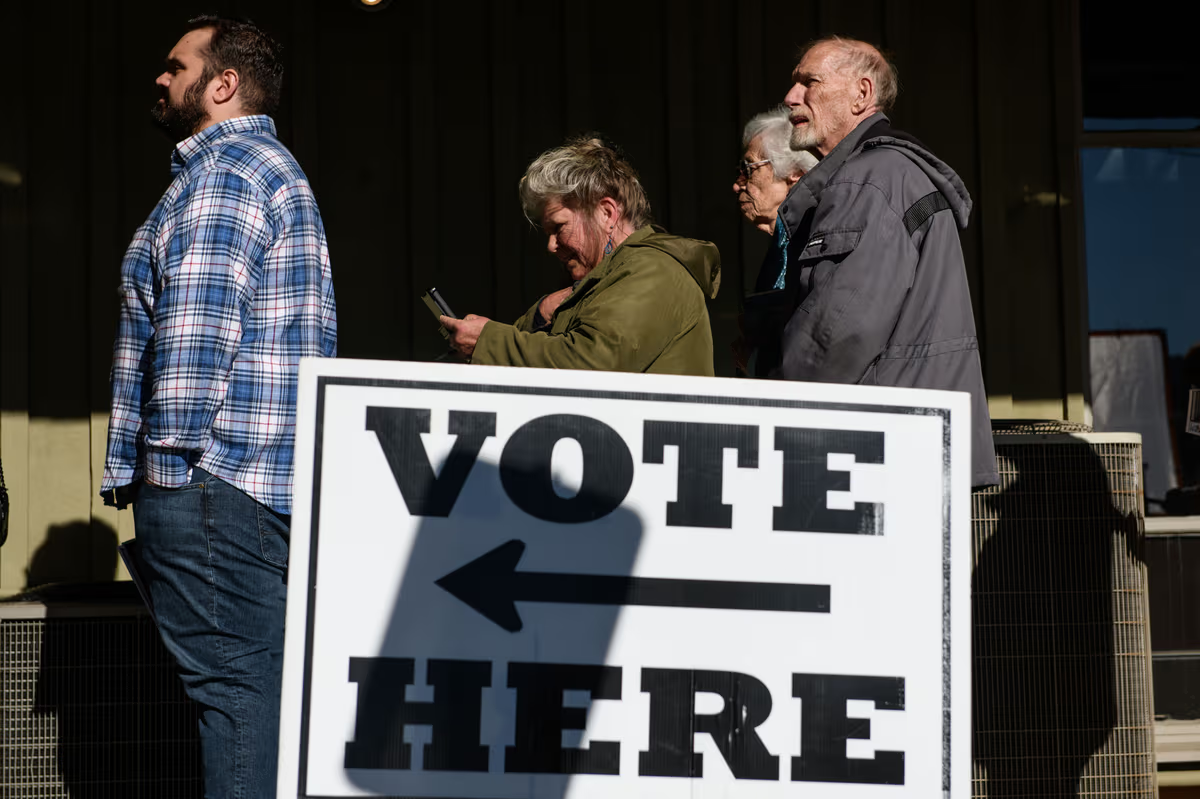Abortion, Noncitizens, and Crime: Americans Will Weigh In on Dozens of Hot Button Ballot Measures This Election Day
There are nearly 150 contentious issues to consider across 41 states.

Millions of votes across America are being cast to determine who will control the White House, Congress, and state and local government.
In 41 states, Americans will also be asked to vote on a variety of ballot measures on hot-button issues such as abortion and recreational marijuana.
Here are some of the 146 ballot measures Americans will decide on:
Abortion
Supporters of protections for abortion access are hoping to extend their winning streak with ballot measures. Since Roe v. Wade was overturned in 2022, six states have had ballot measures that would restrict or protect abortion access.
None of those states either approved ballot measures aimed at curbing abortion access or rejected measures aimed at striking down abortion limits.
That could change in 2024. Ten states will consider measures to protect abortion access.
Polls have found that Florida could be one of the first states to buck the trend as voters appear poised to reject Amendment 4, which would allow abortion up to the point of viability.
Due to a 100-year-old law and two competing abortion ballot measures, voters in Nebraska could approve a measure to restrict abortion and another measure to protect abortion access. If both measures hit the required threshold to be approved, the one that received the most votes will become law.
New York is also considering an “Equal Rights Amendment,” known as Proposition 1. Proponents of the measure say it is designed to protect abortion access further and prevent discrimination.
However, Republicans in the state are calling Proposition 1 a “Trojan horse” due to its broad language. They say the measure’s inclusion of protections for “gender identity” could enshrine the ability of biological males to compete in women’s sports or set up the passage of laws that prevent parents from intervening if their children seek transgender treatments.
Additionally, conservatives have suggested the amendment could require biological males to be able to use a women’s bathroom, be housed in a women’s prison, or set the stage for an irreversible plan for reparations for slavery, and open the door for noncitizens voting in state elections.
Crime
In Arizona, voters will consider Proposition 313, which would require those convicted of child sex trafficking to be sentenced to life imprisonment.
Additionally, they will consider Proposition 314, which would give state officials the power to arrest noncitizens who enter the state illegally. The state passed a similar law in 2010. However, the Supreme Court struck down three of that law’s four provisions.
California voters will weigh Proposition 36, which will allow felony charges to be brought against someone convicted at least twice of theft of items worth less than $950 or someone on their third offense of a drug-related crime. Currently, those offenses are classified as misdemeanors.
Proposition 36 increases the sentence length for several crimes. It adds fentanyl to a list of drugs, such as cocaine and heroin, that could lead to a felony if an individual is found to be in possession of a firearm and one of those drugs. If convicted, an individual could face up to four years in prison, as opposed to one year under the current policy. The initiative would also increase the sentencing for individuals on at least their second theft conviction to up to three years in prison instead of the current sentence of up to six months.
Despite opposition from state Democratic leaders, polls have found the measure receives broad support.
In addition to the ballot measure, polls show the left-wing district attorney of Los Angeles, George Gascón, is on track to lose to a former federal prosecutor, Nathan Hochman.
Mr. Gascón oversaw rising violent and property crime and a contentious prosecutor’s office as he sought to “dramatically change” the criminal justice system.
Elections
Eight states will decide whether to ban noncitizens from voting in elections. Six states have approved similar measures between 2018 and 2022.
Colorado, Idaho, Montana, Nevada, and South Dakota will consider whether to do away with partisan primaries and replace them with top-two or top-four primaries in which the leading candidates, regardless of party, advance to the general election.
Meanwhile, Oregon, Idaho, Nevada, and Washington, D.C., will consider whether to implement ranked-choice voting for elections.
Arizona will consider whether to ban top-two or top-four primaries, and Arkansas will decide whether to repeal its four-year-old system of ranked-choice voting.
Marijuana legalization
Florida, South Dakota, and North Dakota will consider measures to legalize recreational marijuana. Polls in North Dakota and South Dakota have found those measures struggling to win enough support to be approved.
However, recent polls show that the marijuana legalization amendment appears to be getting close to garnering enough support to pass in the Sunshine State despite Governor DeSantis and his allies working hard to defeat it.
Voters in Nebraska will consider whether to approve medical marijuana. A poll conducted by Emerson College last month found 6 in 10 voters said they approve of the measure.
Wages
Arkansas and Missouri will vote on raising the minimum wage to $15 an hour, while California will decide whether to raise the minimum wage to $18 an hour.
Arkansas, Missouri, and Nebraska will also vote on measures that would require employers to provide paid sick leave.

